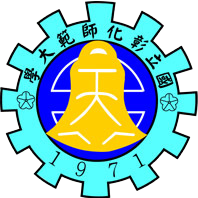SDG17.2.4 Collaboration for SDG best practice
Through various international cooperation and exchange courses and activities, teachers at NCUE have led students to promote the following transnational sustainable development goals and policies.
1. Dean Hon-Man Lee of the Office of International and Cross-strait Affairs continues to lead the team to promote the ASEAN and South Asia programs, implementing the programs that enhance cooperation and exchanges with India, Indonesia, Vietnam, Ukraine, Ghana, and Africa, promoting cross-country/region exchanges through the university's comparative advantages in teaching and research resources in order to attain a mutually beneficial vision of talent cultivation and regional economic development. The various sub-projects include providing the faculty and students with experiences in professional, science and technology fields, and cultural courses; promoting Southeast Asian language and cultural learning programs to facilitate the cultivation of talent in Taiwan in academic, cultural, and economic aspects and trade fields with the ASEAN and South Asian countries/regions; enhancing the complementarity in talents and resource sharing between Taiwan and those countries/regions; organizing international seminars to promote experience exchange and academic dialogue among participants, including Southeast Asian scholars; and actively collaborating with international academic institutions to create an academic landscape in related fields.
SDGs relevance: 4. Quality Education, 10. Reduced Inequalities, 17. Partnerships for the Goals
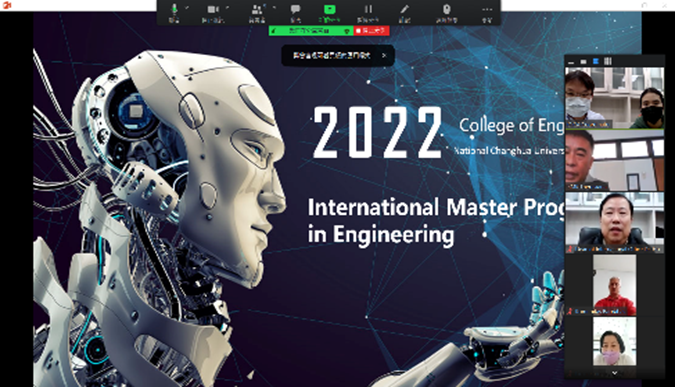
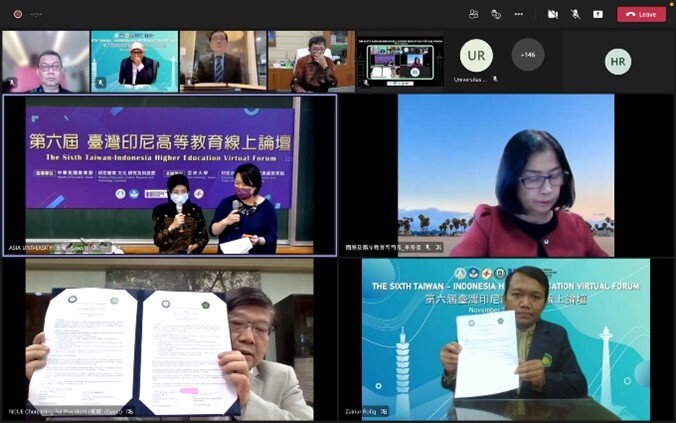
Figures 1 and 2: International seminars
2. Professor Chia-chang Chang of the Graduate Institute of Sports and Health implemented the ‘Asian and Australasian Sports Policy School Sports Exchange and Guidance Programme’ of the Sports Administration, Ministry of Education. NCUE cooperates with the Sports Administration of the Ministry of Education to develop Asian and Australasian talent through the ‘Asian and Australasian Sports Policy School Sports Exchange and Guidance Programme’. This programme helps school sports teams at all levels visit Asian and Australasian countries as well as invites those countries to visit Taiwan for sports events. In addition, students and teachers with sports expertise at all levels are encouraged to participate in international sports events and develop their international mobility. It is hoped that through this programme Taiwan and Asian/Australasian countries will conduct exchanges and cooperate in physical education courses and teaching as well as sports training and develop and exchange physical education teachers and talent.
This program approved grants for 728 projects, including visits to, sports exchange, and competitions with New Southbound countries; seven institutions have signed 13 MOUs, benefiting approximately 20,000 individuals. In 2021, due to the COVID-19 pandemic, the program utilized the online learning mechanism and resources and continued to guide schools at all levels in organizing cross-country online sports exchange activities in Taiwan with New Southbound countries. In addition, the program encourages the organization of regional sports competitions and games in various sports categories for university students from the New Southbound countries studying in Taiwan so as to further establish cooperation and exchange models with New Southbound countries. The implementation outcomes in 2021 are as follows:
2.1 Approved categories:
2.1.1 Two-way exchanges between school sports team: grants for a total of nine projects and 810 beneficiaries.
2.1.2 Two-way visits between school sports teams: grants for a total of five projects and 1,072 beneficiaries.
2.1.3 Sports Events Exchange: grants for a total of one subsidy and 200 beneficiaries.
2.2 Exchange projects: Mostly badminton, athletics, sepak takraw projects, followed by table tennis, baseball, karate, and archery.
Table 1 Number of projects implemented and beneficiaries in 2021
|
Category |
Number of projects |
Number of people |
|---|---|---|
|
Two-way exchanges between school sports teams |
9 |
810 |
|
Two-way exchanges via visits between school sports teams |
5 |
1,072 |
|
Sports events exchanges |
1 |
200 |
|
Subtotal |
15 |
2,082 |
The expectation is to continue to forge positive and solid partnerships with New Southbound countries to demonstrate Taiwan's sporting energy to connect with the world and attain the UN’s SDG goals after the pandemic stabilizes. Please refer to Annex 17.2.4 - Implementation of the projects of the Sports Administration of the MOE with New Southbound countries for more details.
SDGs relevance: 3. Good Health and Well-being, 4. Quality Education, 17. Global Partnerships for the Goals
3. In line with Bilingual Nation 2030 and in response to the market demand, the Bilingual Education Research Center of NCUE and the American Institute in Taiwan (AIT) have partnered to conduct free online bilingual education workshops; bilingual education expert Dr. Adrienne Johnson was invited to lead a series of STEM+A (Science, Technology, Engineering, Math, Art) online workshops from October to December, 2021. Classes were conducted in English throughout the program to train teachers and pre-service teachers to impart various academic skills and professional competencies bilingually.
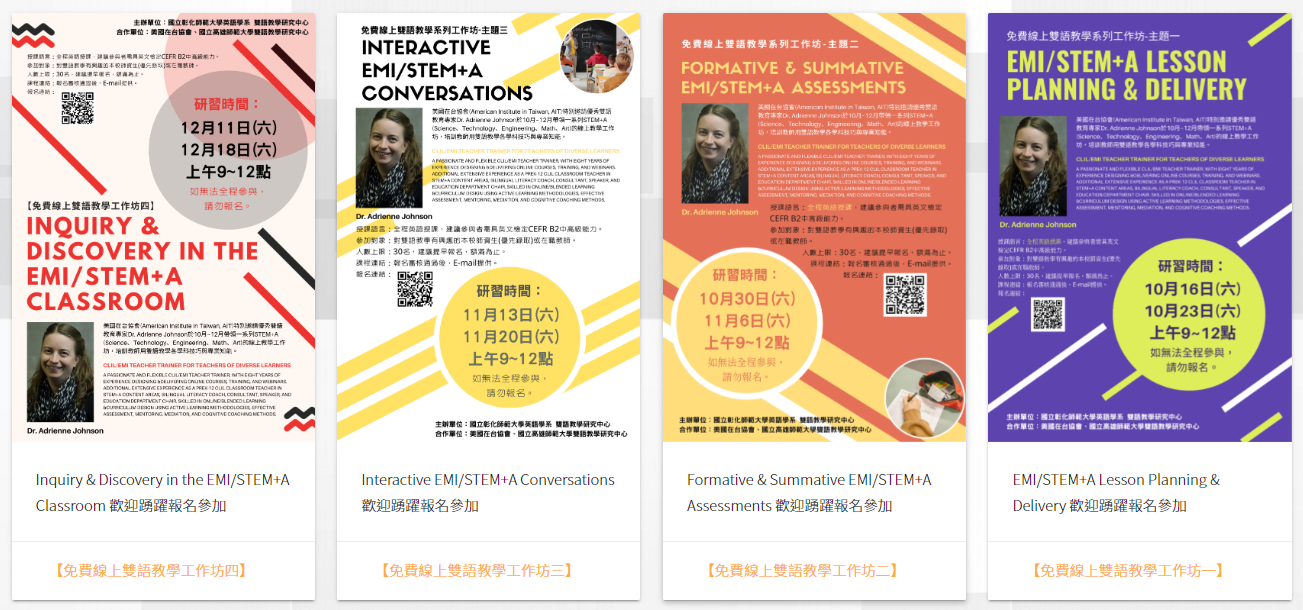
Figure 3:Free online bilingual teaching workshops
SDGs relevance: 4. Quality Education, 17. Global Partnerships for the Goals
4. NCUE and Fulbright Taiwan jointly held a tree planting event on World Earth Day on April 22, 2021 and planted a Buddhist pine on each of the two campuses in Jin-De and Baoshan. Moreover, free saplings were given to students, faculty, and the public to embrace the idea of environmental protection. AIT Director William Brent Christensen conveyed his congratulatory message on the event through the Foundation for Scholarly Exchange. Buddhist pines were planted to convey the educational connotation of "ten years of trees, one hundred years of people.” The Changhua County Government also donated thousands of saplings of Common Jasmin Orange and Osmanthus fragrans (fragrant olive) plants to promote the idea of tree planting and greenery in daily life and the concept of sustainable development.
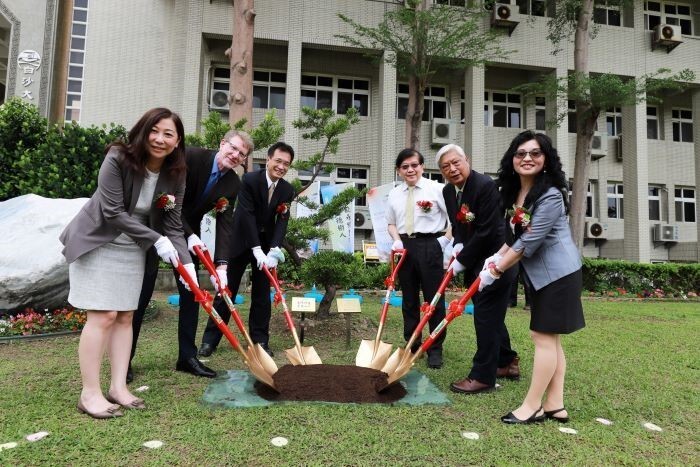
Figure 4: NCUE and Fulbright Taiwan jointly held a tree plantation event on World Earth Day
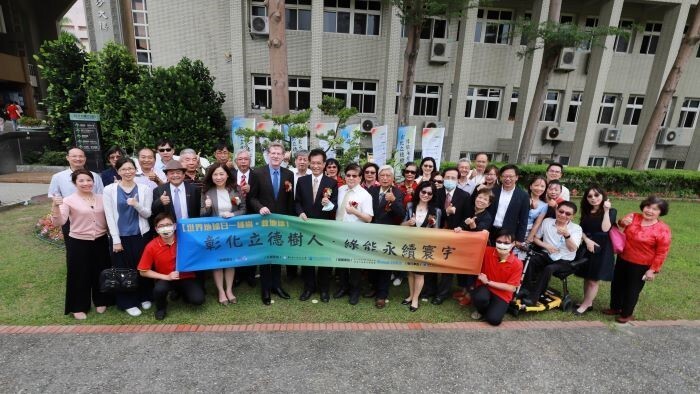
Figure 5: Group photo of guests and teachers in front of the Buddhist pine plant
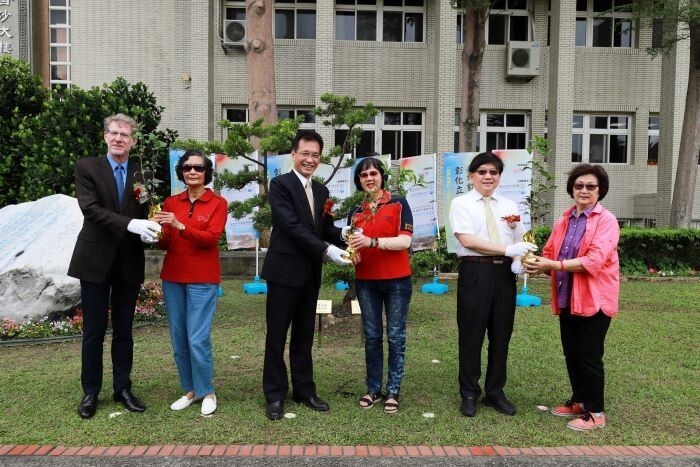
Figure 6: Sapling distribution
SDGs relevance: 3. Good Health and Well-being, 15. Life on Land, 17. Partnerships for the Goals
5. Professor Chung-Chi Lin of the Department of Biology specializes in the study of red fire ants, and red imported fire ant (RIFA) is among the top 100 invasive species worldwide. After the first red imported fire ant was observed in the port of Hyogo Prefecture in May 2017, the Japanese industry, government, and academia have been actively monitoring and controlling the spread of RIFA. As no wild RIFA population has been found in Japan, Earth Corporation has commissioned the Social Insect Laboratory to conduct RIFA bait efficacy trials, including indoor and field tests, since October 2017. The findings of the joint research were published in an international academic journal (https://doi.org/10.1093/jee/toab255) for the first time this year.
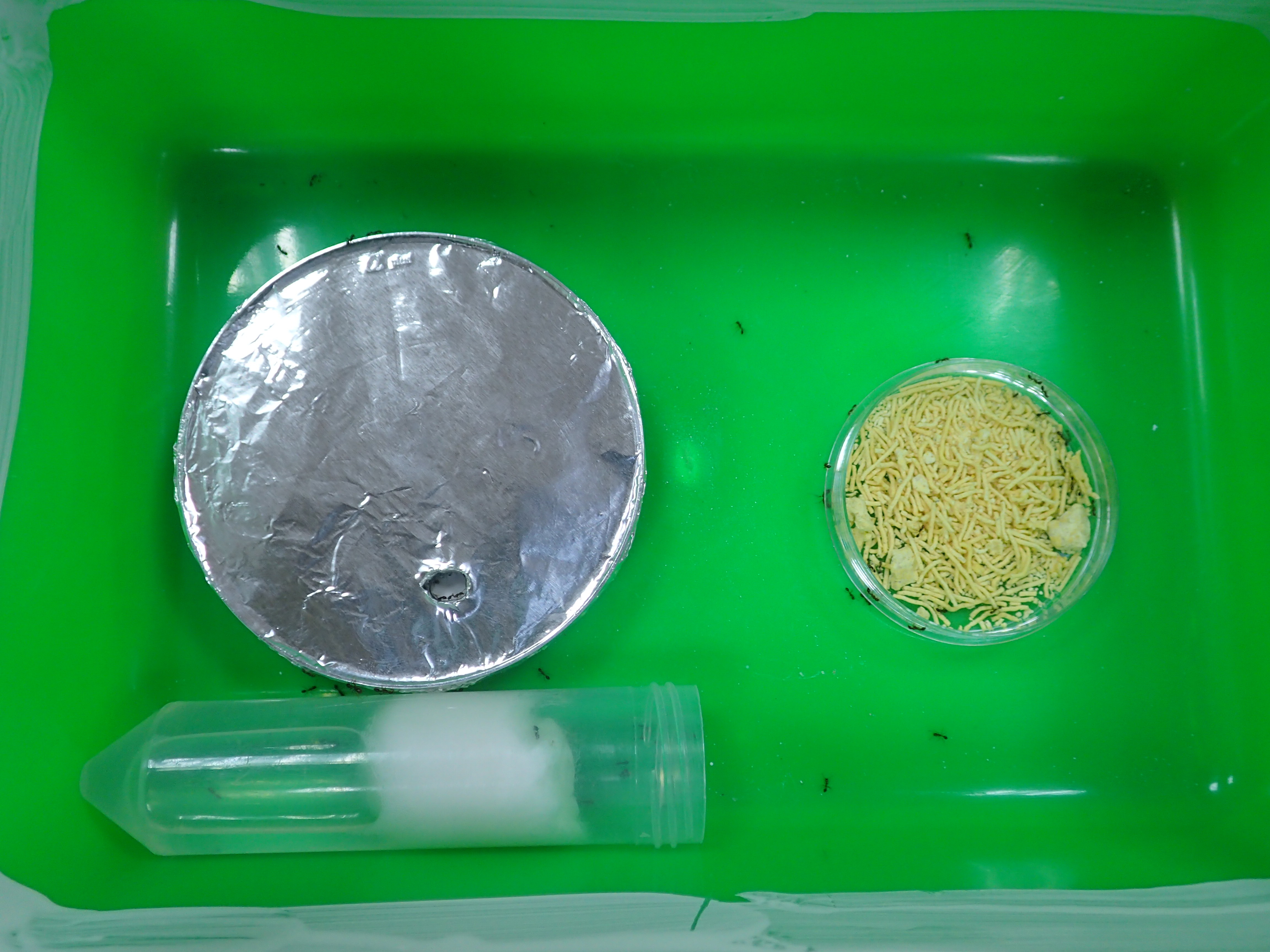
Figure 7: Photos of the RIFA bait efficacy trials
Annex
- 17.2.4 - Implementation of the projects of the Sports Administration of the MOE with New Southbound countries.
